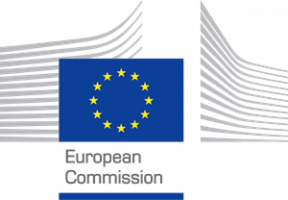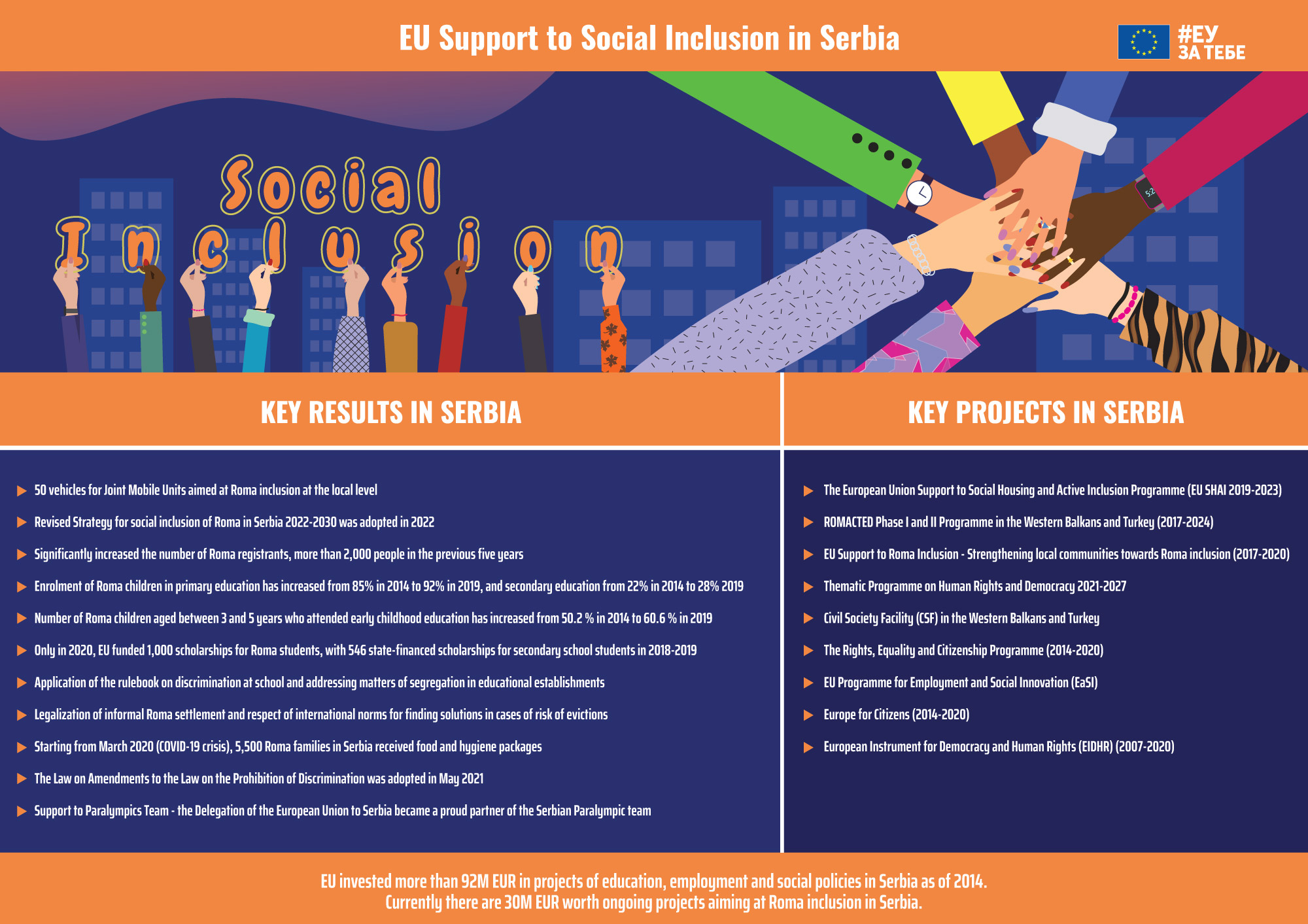EU institutions/bodies

Directorate-General for Employment, Social Affairs and Inclusion (DG EMPL)

European Economic and Social Committee

Social inclusion is one of the proclaimed objectives of the European Union. It is defined as the process of improving conditions for participation in society, particularly for socially excluded people, by creating opportunities, providing access to resources, giving them voice and making sure their human rights are respected. People end up excluded, not only because they are currently unemployed or have no income, but also because they have little prospect for their or the future of their children. Promotion of social inclusion means combating poverty and all forms of discrimination.
Since 2014, European Union’s support for social inclusion in Serbia has reached more than 91 million EUR. EU-funded projects in Serbia seek to improve the system of social protection, increase the level of education of the workforce, achieve higher employment rates, fight discrimination in employment, and introduce standards related to social policy and employment, especially when it comes to improved access to labour market for younger populations.
The strategic framework of the Republic of Serbia in this area consists of a number of documents. The policies of social inclusion are defined by the wider concept of the Human Resources and Social Development sector, which includes several national strategies in the area of poverty reduction, social inclusion, social welfare, education, employment, health, and social housing, as well as strategies aimed at improving the status of vulnerable groups, such as women, persons with disabilities, Roma, migrants, and others.
Roma inclusion is in absolute accordance with the EU principle of full respect for fundamental rights for all citizens. As such, it remains one of the main priorities in both Member States and candidate countries. In October 2020, the European Commission adopted a new 10-year plan to support Roma in the EU, putting emphasis on seven key areas: equality, inclusion, participation, education, employment, health, and housing. In March 2016, the Republic of Serbia adopted the Strategy for Social Inclusion of Roma 2016–2025. Roma are one of the most vulnerable, discriminated against, and marginalised groups in Serbia. Strengthening institutional capacities for Roma inclusion at the local level is, therefore, of outmost importance. The EU is by far the largest donor in Serbia, including the process of Roma inclusion, with ongoing projects worth 30 million EUR.
The process of social inclusion was established in the EU in 2000. The recently published strategic document Europe 2020: A European Strategy for Smart, Sustainable and Inclusive Growth defines framework for the development of the European Union. The goal of this strategy is knowledge-based economic development that seeks to protect the environment and achieve high levels of employment, productivity, and social cohesion. Inclusive growth is one of the three priorities of the Strategy. It includes increased participation in labour market, combating poverty, and achieving social cohesion and is implemented via two programmes, i.e. two flagship initiatives: European Platform against Poverty and Social Exclusion and New Skills Agenda. Furthermore, in 2017 the European Commission launched the European Pillar of Social Rights initiative (the Social Pillar) which sets out 20 principles aimed at improving access to labour markets and the systems of social protection, and serves as the EU’s compass to achieve better working and living conditions in Europe.

Since 2014, European Union’s support for social inclusion, education, and employment in Serbia has reached more than EUR 92 million. EU-funded projects in Serbia seek to improve the system of social protection, increase the level of education of the workforce, achieve higher employment rates, fight discrimination in employment, and introduce standards related to social policy and employment, especially when it comes to improved access to labour market for younger populations.
In March 2016, the Republic of Serbia adopted the Strategy for Social Inclusion of Roma 2016–2025. Roma are one of the most vulnerable, discriminated against, and marginalised groups in Serbia. Strengthening institutional capacities for Roma inclusion at the local level is, therefore, of outmost importance. The EU is by far the largest donor in Serbia, including the process of Roma inclusion, with ongoing projects worth 30 million EUR. The EU is by far the largest donor in Serbia, both overall and with regard to the process of Roma inclusion.
European Union support is implemented in cooperation with the Government of Serbia. The European Union is the biggest donor in Serbia, having donated more than the rest of international donors combined.


